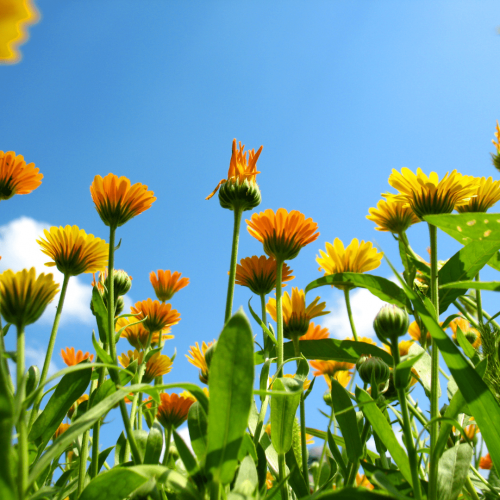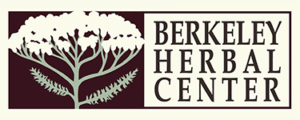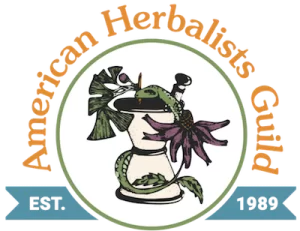
The stories in our Herbalist Journey series show there’s no wrong way to start on the journey to become an herbalist.
For many herbalists, the journey began when they found empowerment through plant medicine on their own healing path. For others, a tradition of love of plants and magic runs in the family. And still others are called, seemingly out of nowhere, to dive headfirst into becoming an herbalist!
Regardless of where you start, if your calling is to follow this path, the way will open before you. But what is an herbalist, really?
Herbalist is another word for someone who works with plants to heal and whole their community. Every human culture since the dawn of our species has developed a tradition of plant medicine.
Over the centuries, in some times and places, herbalists have been misunderstood and even persecuted. Witches were plant healers accused of being in league with dark spirits. In modern times, the mainstream medical industry tends to warn people away because plant medicines often don’t have double-blind controlled studies to back their use. Herbalists have a long history of continuing to offer healing in spite of propaganda and prejudice.
In truth, an herbalist is a trained healer in service of the well-being of both people and the planet. Herbalists are deeply knowledgeable and experienced in both the therapeutic uses of plants and how they affect the human body.
Herbalists combine old knowledge, much of it passed down through ancestral lines, with modern science to empower people to take control of their own healing. They make plant medicines and are dedicated to offering personalized support to the people they work with.
If you’re considering becoming an herbalist, you probably want to understand what herbalists actually do!
Most of us are accustomed to our doctors giving us a drug that addresses a specific symptom: antacids for heartburn, allergy medications for hay fever, and so on. An herbalist works differently. The goal of a Western herbalist is to understand their clients as whole persons and create an integrated plan including plants, diet and lifestyle changes to help them live a healthy, fulfilled life.
An herbalist works with the physical, emotional, and spiritual aspects of a person to uncover the root cause of an issue or chronic condition. Where a doctor sees a chronic stomach ache, an herbalist might see an emotional misalignment stemming from childhood. The herbalist will support the client to heal the stomach ache, and also offer ways of working with plant allies to help heal the childhood trauma as well.
Herbalists are trained in how to offer herbal support for acute and pre-existing conditions, how to build energetic health, order (and read) blood work, provide emotional support, and develop holistic health. They learn how the human body works and how different herbs impact the body’s complex chemical and hormonal pathways.
Plants are multi-faceted and work on many levels in the physical and spiritual body. Herbalists combine different plant medicines to address the unique needs of each client. These formulations are extremely personalized; no two are exactly alike because no two people are identical.
They also know how to make sure that what they offer won’t interfere with medicines the client is taking, avoiding contraindications or undesirable interactions.
In other words – becoming an herbalist is a serious study and has many facets. It’s never boring.
While becoming an herbalist is a lifelong endeavor, it starts with a calling.
There’s not an herbalist on the planet who doesn’t feel the pull of the plants, hear the call on the wind, or have an intrinsic need to help – and in most cases, “help” seems to lean toward healing.
If you’re reading this post, you probably have some hint that you’re being called too. But what happens next?
Answering the call is the start, but an herbalist’s work is driven by yearning for knowledge of healing.
You can begin simply by reading a book. There are hundreds, and once you get started, you’re going to have a hard time stopping. Here’s a few books to start with:
Being curled up on the couch, drinking a wildcrafted tea from your garden, and reading your book is one thing, but if you’re finding that you can’t get enough – take a short course that interests you.
There’s nothing that says your herbal education has to be linear. If you’re interested in fertility, find a fertility class. If you find that you want to incorporate herbalism into your daily life, learn about herbal dentistry or herbal first aid. If your calling is geared towards the metaphysical, consider flower essences.
Taking short classes is a great way to dip your toe in while you increase your herbal knowledge. You can work with your own health, and start to empower the people around you!
Here’s where the journey to become an herbalist gets more serious. And even more interesting. If you’re finding that you’re in love with the world of herbal medicine and you want to learn more, it’s time to wonder if becoming a clinical herbal practitioner is the path for you.
Spend time with yourself and the plants around you, asking and reflecting. Do you feel invited into the practice? Are you curious to dive deeper into the mysteries of the plant spirits around you? Do you have loved ones you feel you could help with healing if you immersed yourself in herbalism?
If you think you’re ready, but you want to test it out before making a full commitment, try taking an introductory class like our Introduction to Herbalism course. We offer it three or four times each year and you can find the next one on our courses page.
Click Here to Find Our Next Intro to Herbalism Course
Step five is for people who want herbalism to be at least part of their work or career. There are no official licenses or degrees granted in the US for herbalists, but you can become a registered herbalist with the American Herbalists Guild (AHG). The AHG is a peer-reviewed credential that allows you to add Registered Herbalist (RH) to your name.
The process of becoming a registered herbalist is rigorous – as it should be. To start, you need 800 hours of training along with 400 hours of clinical experience and a working knowledge of at least 150 herbs and their uses. You’ll need letters of recommendation and continuing education, case studies, and a scope of practice.
The best way to start on this path is to join a long-term program, especially one that is known to the AHG and that offers clinical experience with the guidance of our senior herbalists.
Berkeley Herbal Center is one of the few schools in the US that offers programs that prepare you to become registered with the AHG. That’s why we offer three certification programs each year, designed to allow anyone to pursue their herbal education even if they’re working full time, raising a family, or living outside the San Francisco Bay Area. Students can choose from an intensive eight-month long apprenticeship program, a two-year in person night-class program, and a two-year night class online program.
Click Here to See Our Certification Programs and Find the One for You
Students who complete our certifications courses are qualified to spend a year as a clinical intern in our low-cost community clinic, under the supervision of experienced herbalists who guide their work with clients.
Support Our Work
Berkeley Herbal Center is a 501(c)(3) organization, so all donations are tax deductible. Tax ID #14-1975183
If you would like to donate by check or cash, please send an envelope addressed to:
Berkeley Herbal Center
1250 Addison St., #G
Berkeley, CA 94702

